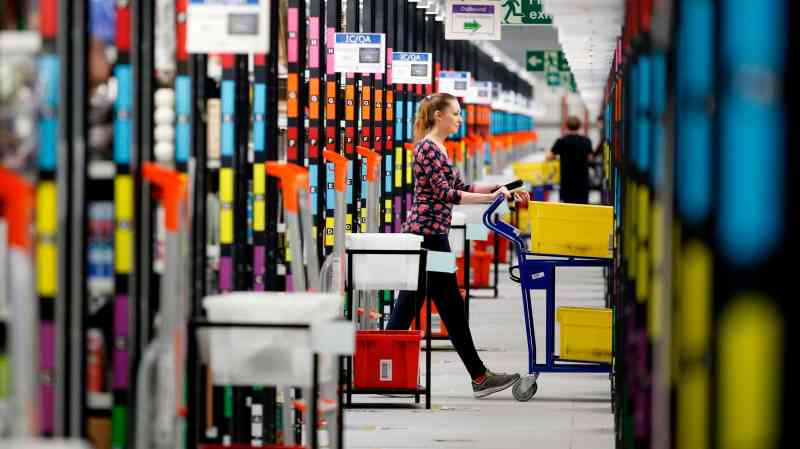Vacancies rise in boost for jobs market
Job vacancies have increased for the first time this year, bolstering evidence against the Labour government’s claims that it has inherited a static economy from the Conservatives.
The number of job advertisements in Britain rose by 1.1 per cent in July to 862,043, up from 852,703 in the previous month, according to Adzuna, the jobs search site. However, over the past year, vacancies have declined sharply by 18 per cent.
The rise was driven by a 13 per cent increase in domestic cleaning jobs and a 3 per cent jump in vacancies in the legal sector. Manufacturing roles jumped by 2.7 per cent, while creative and design roles rose by 1.6 per cent.
Adzuna said that warehouse workers had been the most in demand for the past 14 months. Demand for workers was weakest in the charity sector, with roles down by 8 per cent, followed by travel, down by 4.7 per cent, and hospitality, down by 4.6 per cent.
The advance in vacancies reinforces counterclaims against Labour’s insistence that it has been handed the worst economic inheritance since the Second World War. While that may be a more accurate description for the state of the public finances, economic growth has exceeded expectations, with GDP rising at one of the fastest paces in the first half of this year since 2017.
This month the Bank of England lifted its forecast for annual growth this year to 1.25 per cent, from 0.5 per cent previously. The Office for Budget Responsibility is expected to follow suit when the budget is announced on October 30.
Despite near-term growth picking up, analysts believe that Britain’s underlying growth potential is weak by historic standards. According to the National Institute of Economic and Social Research, the independent economics think tank, the country’s long-run growth rate is about 1 per cent. Living standards have barely improved since the 2008 global financial crisis because of a sharp slowdown in productivity growth.
“Optimism about the UK economy following higher-than-expected growth figures and a new government has extended into the jobs market, with the first monthly rise in job postings this year in July,” James Neave, head of data science at Adzuna, said.
Graduate recruitment picked up momentum over the month to July, with jobs targeted at university leavers rising by nearly 3.7 per cent.

Official figures published by the Office for National Statistics last week revealed that the rate of unemployment had fallen to 4.2 per cent, from 4.4 per cent. Wages growth cooled to 5.4 per cent, a near-two-year low, sparking speculation that the Bank of England could cut interest rates again at its next meeting on September 19 from the present level of 5 per cent.
Adzuna said that the number of jobseekers per vacancy had climbed to 2.09, the highest ratio since May 2021, suggesting that the increase in vacancies had been offset by a jump in available candidates. The Bank has stated that this measure needs to increase before it can continue to loosen policy.
The jobs website said that average pay had stagnated over the past month at £38,863. On a regional basis, the West Midlands experienced the highest rate of salary inflation at 5.6 per cent on an annual basis, reaching £37,291.




Post Comment